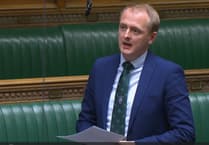THE Welsh Government has denied claims it is “playing politics” by prioritising health spending over cash starved local authorities, announcing last week that an extra £23.6m will be made available for local government.
Some of Wales’ authorities were badly hit as a result of October’s draft budget announcement, with Anglesey, Conwy, Flintshire, Monmouthshire and Powys receiving the joint biggest settlement cuts of one per cent each.
Gwynedd fared just slightly better, penned to receive a 0.8 per cent cut in its block grant which makes up approximately 70 per cent of the council’s overall income.
But the recent budget announcement will see more cash made available for authorities across Wales, with the additional £23.6m meaning that no authority will see its settlement cut by more than 0.3 per cent.
Despite this, of the north and mid Wales authorities, all but two will still see reductions. The exceptions will be Denbighshire, which will see its income frozen, and Ceredigion receiving a slight increase of 0.3 per cent.
Elsewhere, Anglesey (-0.3 per cent), Gwynedd (-0.2 per cent), Conwy (-0.3 per cent), Flintshire (-0.3 per cent), Wrexham (-0.1 per cent), and Powys (-0.3 per cent) will all have to contend with reduced budgets for 2019/20.
Cardiff (0.9 per cent), Merthyr Tydfil and Rhondda Cynon Taf (0.8 per cent) and Neath Port Talbot (0.4 per cent) will all receive improved settlements, but according to opposition AMs all 22 councils will still suffer from “real terms” cuts.
In her written statement, the minister for housing and local government said that the Government had ensured that local authorities were given firm information as soon as possible to support them in planning their budgets.
“While the unhypothecated Settlement is the largest single source of funding available to authorities, it is not the only one,” added Julie James AM.
“In setting their budgets and council tax levels for next year, I expect every authority to take account of all the available funding streams and to consider how to secure best value for Welsh taxpayers through effective and efficient service provision.”
With authorities still battling to achieve the necessary savings, one of Gwynedd’s Cabinet members has accused the Welsh Government of prioritising health spending based on “a political decision.”
Despite the cuts to town hall budgets across Wales, the Welsh Government’s health and social services spend will rise by 5.4 per cent from April with an additional 12.2 per cent for economy and transport, 4.6 per cent for education and 2 per cent for energy, planning and rural affairs.
Cllr Dafydd Meurig, who leads on the environment, told a meeting in Caernarfon: “The settlement we’ve received is disastrous for local government.
“Considering how much room for manoeuvre the Welsh Government had, they seem to have favoured all the other fields apart from local government.
“A cynic would suggest that when problems occur in the health service, its the Welsh Government that gets the blame. But when bad news happens in local government, the flack seems to get thrown in our direction.
“This time, more than any other, the Welsh Government can be blamed as they had a clear choice.”
In response, a Welsh Government spokesperson said: “This has been a challenging settlement overall for local authorities, but they have always been at the heart of Welsh Government considerations.
“We have offered local government the best possible settlement, reducing the level of cuts councils were expecting following the final budget last year and confirming a package of additional funding proposals which have been included in the final Budget.”
The motion for the Senedd to approve the Local Government Finance Report for 2019/20 is scheduled for debate on 15 January.




